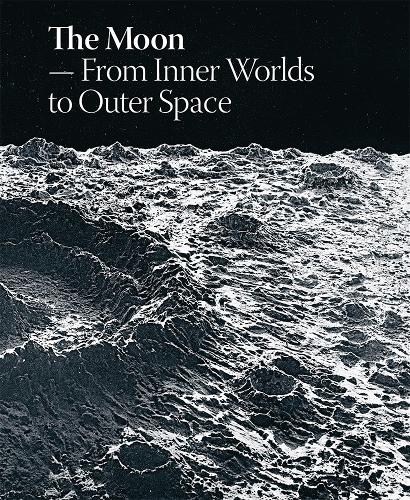
The Moon: From Inner Worlds to Outer Space
(Hardback)
Publishing Details
The Moon: From Inner Worlds to Outer Space
By (Author) Laerke Rydal Jorgensen
Edited by Marie Laurberg
Louisiana
Louisiana
1st March 2019
Denmark
Classifications
Physical Properties
Hardback
128
Width 210mm, Height 255mm
650g
Description
Myths of the moon in the arts and sciences, fifty years after the first manned landing. The moon has long furnished humankind with an artistic icon, an image of longing and object of scientific inquiry. Encompassing art, film, literature, architecture, design, natural history and historical objects, and published on the 50th anniversary of the first manned landing (July 20, 1969), The Moon surveys the iconography of the moon, from Romantic landscape paintings to space-age art. It takes the 1969 landing as a thematic fulcrum and a culmination of the deep-rooted cultural conceptions invested in the space race in the 1960s, from David Bowie to Disney. The book also accounts for the science of the moon throughout the ages, from Galileo to NASA, addressing the many lunar myths that have existed throughout time. Also explored here is moonlight, an important theme in the Romantic nocturnal landscapes of Caspar David Friedrich, J. C. Dahl and Carl Julius von Leypold. Another powerful artistic genealogy is associated with science fiction, a genre that has on occasion influenced space programs: Jules Verne's From the Earth to the Moon (1865), for instance, famously inspired NASA's Apollo programs. Film pioneers such as Georges Mlis and Fritz Lang created cinematic lunar voyages, and in the 1930s, surrealist artists such as Joseph Cornell, Salvador Dal and Max Ernst explored the moonlit landscape as psychological allegory. Later, during the Cold War, superpowers on both sides of the Iron Curtain worked closely with artists to orchestrate and interpret the space race: Robert Rauschenberg, for example, was one of eight artists invited by NASA to witness Apollo 11, while artists in the Soviet Union played a central role in building the cult of the cosmonaut. The Moon looks at all these lunar themes and myths, in a thrilling and inspirational gathering for anyone who has felt the moon's pull on their imagination.
Reviews
...explores the importance of the moon for writers and artists from the Romantics to the present day.-- "Apollo Magazine"
From a 19th-century scientific model, to a Surrealist painting by Salvador Dali, the illustrated work compiles representations of the moon throughout history.-- "Frieze"
From Romantic moonlit oil paintings to surrealist lunar fantasies, images range from Galileo's early maps of the moon to contemporary views in virtual reality.-- "Wall Street Journal"
Explores the many different ways that artists, photographers, film makers, historians, astronomers and more have tried to capture the image of the moon.--Jos Da Silva "The Art Newspaper"
Mixes the images of art with material from cultural and natural history to emphasize the quest for knowledge and awareness that art shares with other cultural spheres.-- "Arts Summary"
Reveals humans have wanted the moon for most of our history -- wanted to understand it, capture it, land on it, own it.--Andrew Dickson "The New York Times"
Author Bio
Lrke Rydal Jrgensen has published widely on art, folklore and folk literature. Marie Laurberg is a curator at the Louisiana Museum of Modern Art, Copenhagen.
